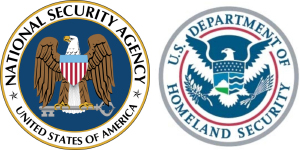NORFOLK, NE – It is difficult to go about one’s day without hearing how computer systems across the world have been compromised through unauthorized access. From meddling in elections to falling victim to being “phished” in an effort to unwillingly provide account information and passwords, the stories are endless. However, for every victim, there are many others who are working to stem the tide of unethical hacking. Count Northeast Community College among the heroes in “white hats.”
The National Security Agency (NSA) and the Department of Homeland Security have designated Northeast Community College as a National Center of Academic Excellence in Cyber Defense Two-Year Education (CAE2Y). The College is one of 16 new centers this year, bringing to 70 the number of two-year colleges in the United States with the CAE2Y designation.
“This designation recognizes the entire College for its security program and its curriculum in producing professionals who will enter the workforce with the training and expertise that is necessary to help protect our nation’s information infrastructure,” said Brad Vogt, Northeast information technology (IT) instructor.
Cybercrime occurs approximately one-thousand times per second and it includes a number of different types of attacks. Vogt said it is necessary to discuss the issue since hacking has become more of a problem around the world. He said it is sponsored by state governments as well as organized crime and individual hackers.
In a letter addressed to Vogt, Karen Leuschner, program director for the NSA’s National CAE Cyber Defense Unit, said Northeast’s ability to meet the increasing demands of its program criteria will serve the nation well in contributing to the protection of the “National Information Infrastructure.”
Leuschner said national and international strategies to secure cyberspace “address the critical shortage of professionals with these skills and highlights the importance of higher education as a solution to defending America’s cyberspace.”
Vogt was with Dr. Wade Herley, dean of the business and technology division at Northeast, at the DefCon 26 hacking conference in Las Vegas when they learned the College received the CAE2Y designation. Herley said it places Northeast in distinguished company among very few two-year higher education institutions.
“This validates many things our IT and other programs have already been doing. This designation also tells our 20-county service area that when anyone has questions about these types of issues, we’re the resource they can come to.”
Four Northeast information technology associate of applied science degree programs that focus on cybersecurity have been recognized by NSA and the Department of Homeland Security to qualify as a CAE2Y college.
Vogt said Northeast first began teaching cybersecurity protocols in 2009, two-years before the first CAE2Y center was established. He said they received the go ahead to develop curriculum after the IT program’s advisory committee supported the move.
In order to be considered for the CAE2Y designation, Northeast applied as a college and completed a 100-page application to be considered. He said the application process confirmed how Northeast is educating and preparing students to work and to be employed in this environment.
“When one of our students is in an interview, they can now say that the NSA and Homeland Security have reviewed Northeast’s curriculum and that they are well trained on matters of entry-level cybersecurity.”
Northeast has been working with high school students to instill the importance of training ethical hackers to enter the workforce. This will mark the third year Vogt and the other IT instructors Richard Chrisman, Kris Coan, and Gigi Simonsen, have conducted their “Cybersecurity and Software Development Summit,” which is designed to show students who are interested in a career in information technology what Northeast has to offer, and to explain that there is a big push to get more people into the IT field.
As a CAE2Y center, Northeast will be able to seek grant funding, seek technology-related requests and scholarships that could be made available, and collaborate with other colleges in the CAE2Y community to share curriculum and ideas in order to continuously improve.
Information security is one of the fastest growing fields in technology today. The United States Bureau of Labor Statistics predicts a 28-percent increase in information security analyst positions through 2026. However, Vogt said there are not enough people to fill those positions. But that’s where the CAE2Y designation comes in.
At the DefCon conference, the head of NSA’s cybersecurity unit spoke of the need for more people to assist in the effort to combat cyber threats. Vogt said government representatives were there to investigate or arrest hackers, but they were also looking for talent, or, what are considered to be, “ethical hackers.”
“…And if they are there to shine a light on all of the ‘white hats’ in the room, it’s time well spent for (NSA). That’s what Northeast is training people to be. We’re training people here to be the good guys, not the bad guys,” Vogt said.
For more information, visit https://cybercenter.northeast.edu/
PHOTO CUTLINE
High school students work during one of the sessions at a Cyber Security and Software Development Conference at Northeast Community College in 2017. The National Security Agency and the Department of Homeland Security have designated Northeast as a National Center of Academic Excellence in Cyber Defense Two-Year Education (CAE2Y). The College is one of 16 new centers this year, bringing to 70 the number of two-year colleges in the United States with the CAE2Y designation.

